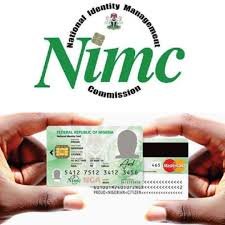The Code of Conduct Bureau (CCB) has recently made headlines by suspending three high-ranking Kaduna State officials for various infractions, signalling a renewed commitment to accountability. Korede Abdullah, Africa Health Report Southwest correspondent, writes on the CCB’s revitalized efforts and how it could have a far-reaching impact on promoting transparency and good governance in the country.
CCB Waking up from Slumber
The Code of Conduct Bureau (CCB) finally bare its fangs, and it is clear they are no longer just a toothless bulldog that can only bark but cannot bite with just symbolic presence.
In a bold move, the Code of Conduct Tribunal (CCT) had caused the suspension of three top Kaduna State officials – Samuel Peter, Shizzer Bada, and Tijjani Abdullahi – over allegations of false asset declarations.
The State governor, Uba Sani took the action as the CCB seeks to demonstrate its commitment to holding public officials accountable for their actions.

According to Veronica Kato, spokesperson for the CCB, the trio has been directed to step down from their positions pending their trial.
The tribunal’s ruling, delivered on October 22, 2024, directs the officials to step down from their positions pending their trial.

This decision follows an ex parte application submitted by the Code of Conduct Bureau regarding violations of the Code of Conduct Bureau and Tribunal Act, CAP C1 LFN 2004.
They are accused of violating provisions requiring public officers to declare their true assets from time to time.
The tribunal has also instructed the Kaduna State Governor and Secretary to the State Government to appoint interim replacements for the suspended officials.
The trio is scheduled to appear before the tribunal on November 7, 2024.
Some concerned Nigerians who spoke our correspondent said that the development marked a significant step in the fight against corruption, demonstrating the Code of Conduct Bureau’s commitment to holding public officials accountable for their actions.
The bureau’s swift action was prompted by a petition alleging various infractions of the Code of Conduct for public officers.

This development marks a significant shift in the CCB’s approach, signalling that they’re ready to tackle corruption head-on.
The CCB’s primary functions include receiving and verifying asset declarations from public officers, investigating non-compliance, and enforcing the Code of Conduct.
The Code of Conduct Bureau plays a vital role in promoting transparency and accountability in Nigeria’s public service.
By taking swift action against erring officials, the CCB aims to restore public trust and ensure that those in power adhere to ethical standards.
Kano Anti-Corruption Chief Suspended by CCB
To demonstrate that the Code of Conduct Tribunal has broken away from the past inactivity, the CCB suspended Muhyi Magaji, Chairman of the Kano State Public Complaint and Anti-Corruption Commission, over allegations of misconduct and breach of public officer’s conduct.
Magaji was made to face charges including conflict of interest, abuse of office, false asset declaration, bribery, and accepting gifts. These allegations led to his arraignment in the Code of Conduct Tribunal, Abuja.
The tribunal directed Magaji to step aside as PCACC chairman due to contravening the Code of Conduct Bureau and Tribunal Act CAP C15 LFN 2004.
He was ordered to remain suspended pending the hearing and determination of the case. Additionally, the Kano State Governor and Secretary to the State Government have been ordered to appoint an acting chairman to take over the commission.
Veronica Kato, spokesperson for the Code of Conduct Bureau, confirmed the suspension in a statement.
This development points to the Bureau’s reactivation and commitment to holding public officers accountable for their actions.
Nigerians Applaud CCB, Call for Broader Accountability
The recent suspension of three top Kaduna State officials by the Code of Conduct Tribunal (CCT) has been met with widespread approval from Nigerians, who see it as a significant step towards promoting accountability in governance.
The move is expected to set a precedent, encouraging public officials to declare their assets and adhere to due process.
Many Nigerians are now urging the Code of Conduct Bureau (CCB) to extend its proactiveness beyond Kaduna State, ensuring that all public officials across the country comply with asset declaration regulations.
Analysts believe that the CCB should take a firm stance against those who have flouted the law, making them face the consequences of their actions.
The CCB’s mandate is to establish and maintain high standards in the conduct of government business, enforcing the code of conduct for public officers as outlined in the 1999 Constitution of the Federal Republic of Nigeria.
By taking decisive action against erring officials, the CCB can promote transparency and accountability, ultimately strengthening Nigeria’s governance framework.
New Era of Accountability A Plus for Democracy
As the CCB continues to carry out its mandate dutifully, Nigerians are hopeful that this marks the beginning of a new era of accountability and transparency in public office.
With the suspension of the Kaduna State officials serving as a deterrent, public officials are likely to think twice before engaging in unethical behavior, promoting a culture of integrity and responsibility in governance.
As the CCB continues to flex its muscles, Nigerians can expect more efforts to combat corruption and promote good governance.



